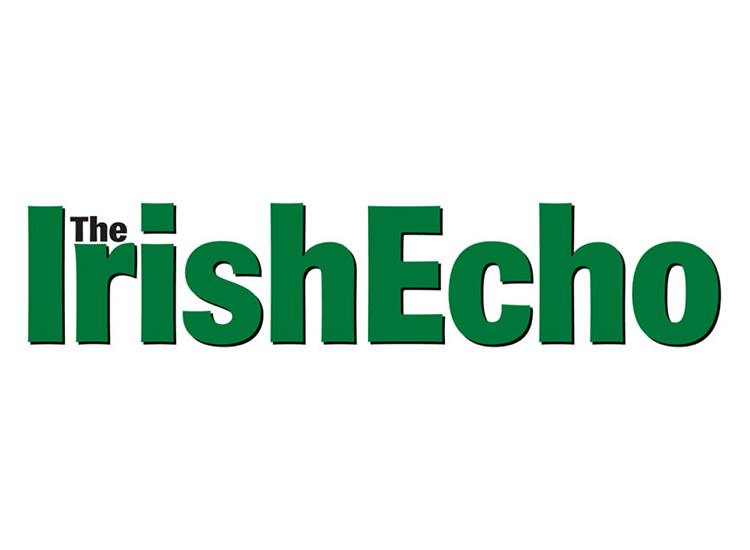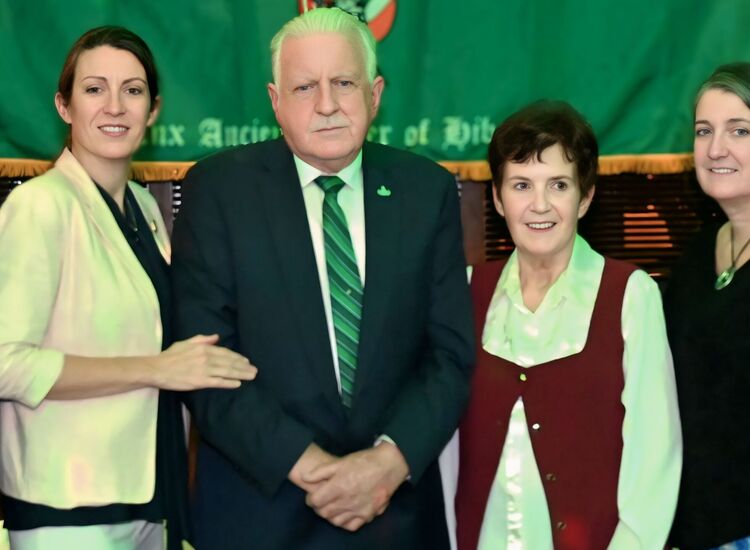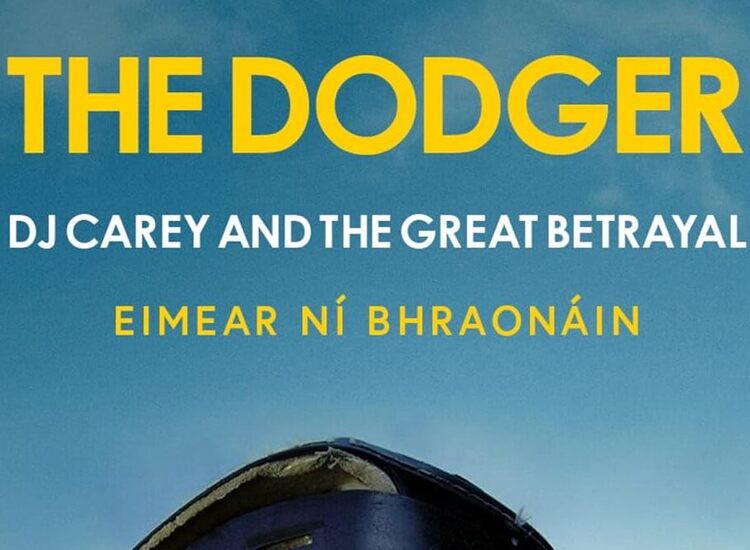When the President of the United States travels to Ireland on a state visit this week, the highlight of his trip won’t be addressing the Dáil, discussing economic policy with Taoiseach Enda Kenny, or dining with Mary McAleese at Aras an Uachtarain. The real highpoint of Barack Obama’s visit will be a stop in Moneygall, Co. Offaly. It was from this small Irish village that Obama’s great, great, great grandfather, Falmouth Kearney, emigrated to America in 1850.
Understandably, Ireland has been in the throes of Obamamania - and genealogical fever — since the presidential trip was announced on St. Patrick’s Day. Tourists have been flocking to the tiny town on the Offaly / Tipperary border to enjoy pints in Ollie Hayes’s Bar and snap photos along the main street, where the Kearney house still stands. Also attracting the attention of amateur photographers is the house of local businessman Jason Austin, who painted his home in a Stars-and-Stripes motif, and the Templeharry Anglican Church, where the Kearney family worshipped and where their baptismal records were discovered.
The discovery of the president’s Irish roots has sparked a renewed interest among Americans for tracing their own Irish family histories. And there’s never been a better time to undertake the search, utilizing both online resources and the trove of genealogical records - civil and church records, land/property valuations, census returns — held in Ireland.
To begin your search for your family’s roots, you will need some basic information about the ancestor who left Ireland. Among the most useful starting points are: name; approximate date of birth; county and parish of origin in Ireland; religious affiliation; names of ancestor’s parents; name of spouse; date of marriage; type of employment. Armed with as much information as possible, you can start your search using online databases.
Online resources
The National Archives of Ireland website (www.census.nationalarchives.ie) is a great starting point. It contains the census records from 1901 and 1911, and is searchable by name, townland, city and county. Information — including the names, ages and literacy levels of the occupants of the home — is delivered as either plain text or as scans of the original, handwritten forms.
Griffith’s Valuation is available online at www.askaboutireland.ie. As the first comprehensive, full-scale valuation of property in Ireland, carried out between 1847 and 1864, it is considered a vital genealogical resource. Access is free, and it is searchable by family or place name. A similar service is offered by Origins.net, which offers a variety of subscription options, including 72 hours’ access.
The Irish Genealogical Project (www.irishgenealogy.ie) has compiled a comprehensive database of church and civil birth, death and marriage records. The project is being rolled out in phases; at present, the website offers a searchable database for Dublin, Kerry and Carlow records. Other counties will be added in the future.
The Church of Jesus Christ of Latter Day Saints, also known as the Mormon Church, has compiled a worldwide database of birth, marriage and death records at www.familysearch.org. Many of the Irish birth records are listed in a three-month range, reflecting when the birth was registered, but it’s useful for cross-referencing with the other databases.
Northern Ireland records are contained in the databases listed above, there are a few online resources that specifically address genealogical records from the six counties. The Belfast City Council offers a searchable index of burial records at www.belfastcity.gov.uk/burialrecords for the following cemeteries: Belfast City Cemetery (records from 1869); Roselawn Cemetery (records from 1954); Dundonald Cemetery (records from 1905).
Searching in Ireland
Armed with the information you’ve found online, you can plan your visit to Ireland around your genealogical research - and work in some sightseeing as well. No matter what county your ancestors called home, you will want to spend some time in Dublin, where the centralized records are kept. The National Library of Ireland, (Kildare Street, Dublin 2, tel. +353 1 6030200, www.nli.ie) houses a microfilm archive of Catholic parish registers, the Tithe Applotment Books and Griffith’s Valuation, trade and social directories, estate records and newspapers. They offer free advice (via telephone only) on what resources are available to those tracing their family roots.
Searching for church records of other religious denominations? The Representative Church Body Library holds some surviving Church of Ireland parish records (Braemor Park, Rathgar, Dublin 14 www.ireland.anglican.org/library/library.html). In Northern Ireland, the library of the Presbyterian Historical Society houses a comprehensive archive of baptismal and marriage records of church members throughout Ireland.
In Belfast, the Linen Hall Library (17 Donegall Square North, www.linenhall.com) and the Belfast Central Library (Irish and Local Studies Department, Royal Avenue, Belfast www.belb.org.uk) are valuable repositories of local records and periodicals. Access to the Linen Hall Library’s records are available based on a yearly membership fee (at press time, £35 for non-residents), and they offer a specially designed genealogical collection with its own catalogue.
If your fascination with your Irish roots exceeds the time you can devote to research, there are plenty of trained genealogists who offer their services on a fee-paying basis. Consult the Association of Professional Genealogists in Ireland (www.apgi.ie) to find a researcher who specializes in your area of the country.








